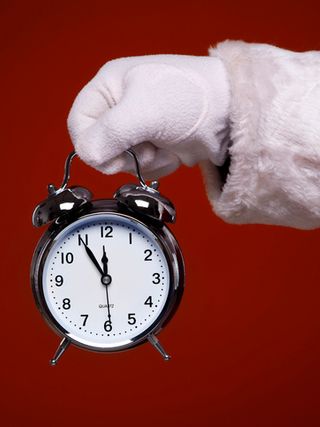Fear of the Dentist? How to Manage Dental Anxiety
Do you feel nervous about going to see the dentist? If so, it may help to know that National Dental Care Group practices offer a range of solutions to help you feel calm, comfortable and relaxed during your dental procedure.
Fear of the Dentist? How to Manage Dental Anxiety
If you experience fear or anxiety about visiting the dentist, you’re certainly not alone. In fact, the fear of going to the dentist is a widely recognised condition, with names including dental phobia, odontophobia, dentophobia, and dental anxiety.
Dental anxiety can be caused by a range of factors, including previous traumatic experience, a fear of needles and sharp tools, certain sounds or smells associated with a dental practice, or the fear of experiencing painful treatment.
The good news is, all our dentists, therapists and hygienists understand the challenges of dental anxiety and are committed to helping anxious patients feel as calm and comfortable as possible during their visit.
Our practices offer a range of solutions to help nervous and anxious patients receive the treatment they need. This includes a number of sedation options to enable people suffering from dental phobia to feel relaxed throughout their procedure.
Here are some of the sedation options we offer, so you can proceed with your dental treatment with confidence.
Laughing Gas
Laughing gas - also known as ‘happy gas’ - is an effective and fast-working inhalation-style sedation option, which has the benefit of zero downtime and minimal side effects. It is one of the safest sedation methods in dentistry.
Once inhaled, laughing gas alleviates feelings of nervousness and fear, making the dental experience much more comfortable and pleasant. You will remain fully conscious and will be able to respond to your dentist's request or directions; you can also swallow, talk, or spit as needed during a procedure.
You may experience some of the following feelings:
- Lightheadedness
- Calmness
- Reduced anxiety
- Reduced pain sensation
- Floating feeling (euphoria)
- Suppressed senses such as hearing, touch, and pain
- Giggling or laughing
- Tingling in the hands and body
While intravenous and oral sedation usually leaves patients drowsy after their procedure, laughing gas doesn't have long-lasting effects and usually wears off within minutes after your dentist removes the mask.
Twilight Dentistry
Also known as IV sedation, twilight dentistry involves a sedative being administered intravenously before dental work is performed, creating a generally pain-free dental experience.
Twilight dentistry can be a great option for anxious patients or those who are particularly nervous about a specific procedure, like wisdom tooth removal, or longer restorative appointments.
In general, there are three situations in which IV sedation is recommended:
- Patients who require procedures that are lengthy or complex
- Patients who tend to experience high levels of stress or fear about dental procedures
- Patients who have a low threshold for pain or those who have a pronounced gag reflex
While many dentists can administer laughing gas, only a small number of dentists are trained to administer IV sedation, and this must be administered by someone other than the person performing the dental work. Some of the medical and dental professionals who can perform IV sedation include:
- Board-endorsed conscious sedation dentists
- Dental anaesthesiologists
- General anaesthesiologists
- Emergency Medical Doctors
General Anaesthesia
For people suffering from major anxiety or fear arising from previous trauma, going to the dentist can be an almost impossible task. In these situations, general anaesthesia - a combination of medications that work together to relax your body into a sleep-like state - can enable these patients to get the care they need.
In most cases, your anaesthetist will deliver the medication intravenously; in other situations, you may opt to wear a mask and breathe in gases that help you drift into a sleep-like state. Once you fall asleep, the anaesthetist may give you a muscle relaxant and insert a breathing tube in your mouth to ensure you get the oxygen you need during the procedure.
Your anaesthetist will continuously monitor your breathing, temperature, and blood pressure to ensure they are at safe levels throughout the procedure. Once the treatment is complete, the anaesthetist will reverse the medication to slowly wake you up - you may feel slightly disoriented at first, but this feeling will soon fade and you’ll be able to continue with your day without disruption.
Some common side effects of general anaesthesia can include:
- Nausea and vomiting
- Sore throat, dry mouth, mild laryngitis
- Achy muscle
- Itching
- Shivering
- Drowsiness
Your National Dental Care Group dentist and anaesthetist will discuss the potential side effects, which will vary based on your condition and the type of dental procedure is performed.
Please note: As with the case of any procedure, you should talk to your dentist about your specific situation and whether you are a good candidate for sedation.
To find out more about any of the sedation techniques discussed in this article - or to talk to your dentist about how to manage dental anxiety - contact us today.


